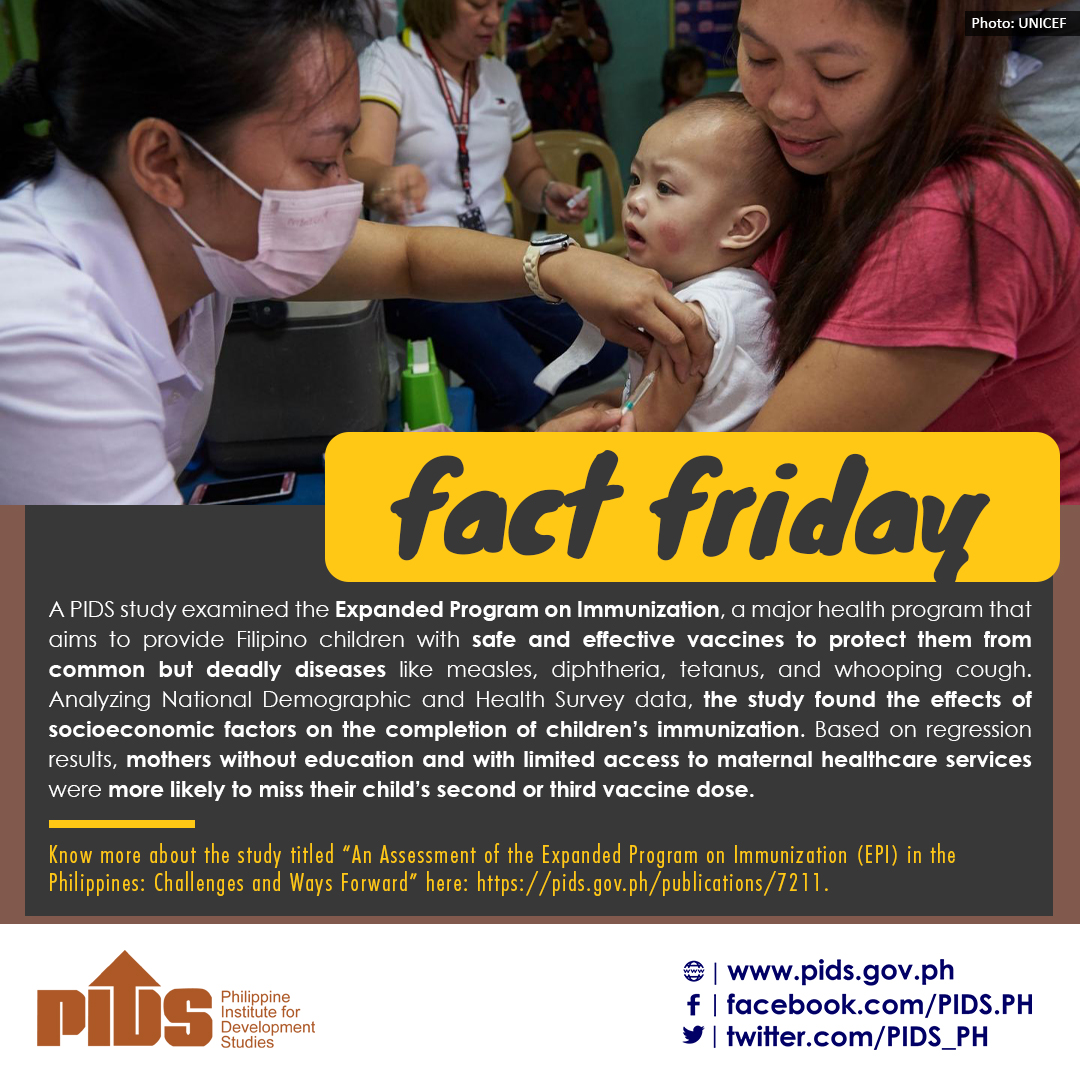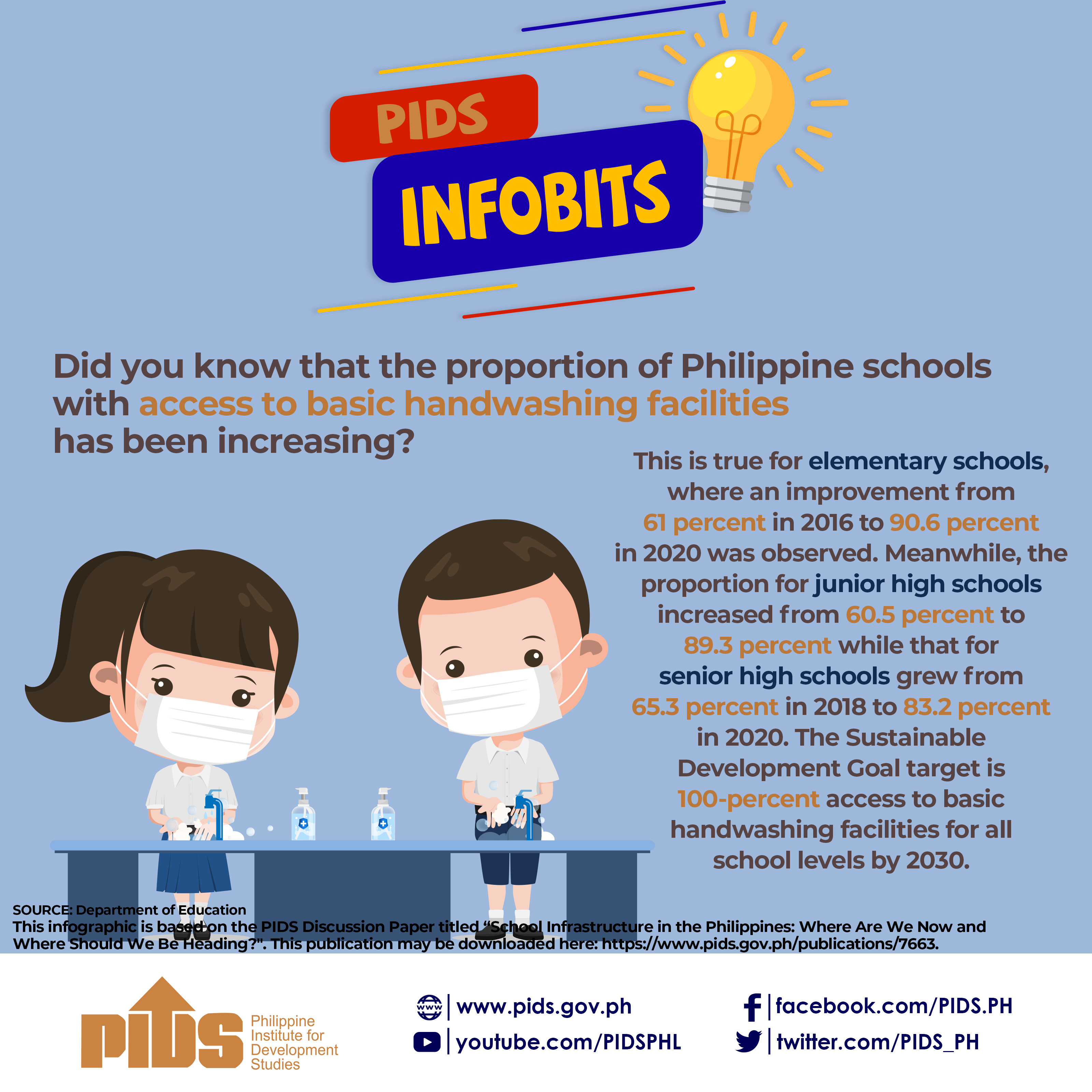although much can still be done for the education sector, a study released by the Philippine Institute for Development Studies (PIDS) said.
The policy note — What do statistics say about basic education in the Philippines — cited particularly the provision of ample resources to Department of Education (DepEd) and the continued support for the Conditional Cash Transfer (CCT).
"Investments made by the Aquino government to the education sector, coupled with the implementation of universal kindergarten and the CCT programs, have improved school participation. Furthermore, there is evidence that a greater number of children are now staying in school,” the report said.
"However, despite these gains, there is still much to be done,” it added.
The study said based on statistical data, some children are still being left behind in being provided opportunities to attain their rights to basic education. "The fact that half of out-of-school children (OOSC) are from poor families suggests that the problem is still largely economic,” the policy note said.
"It will require continued support for the CCT, which can also improve disparities in education opportunity between boys and girls, and between children from urban and rural areas,” it added.
The study said while the past government has extended support to children of secondary school age to complete schooling through the CCT, it is important to reexamine the provision of a uniform cash grant of P500, as opportunity costs for schooling are different for secondary school-aged boys and girls, and between children from rural and urban areas.
"The fact that one in every three primary schoolage OOSC was not attending school due to illness in 2014 is also a cause for concern,” the report stated.
"Government has traditionally used school feeding programs to improve nutritional status of children. However, these programs do not reach those who are not in school,” it added.
The report noted as of 2014, one in every 10 five-year-old children needs to be put in school.
"Campaigns for bringing these children into kindergarten should be continued and further intensified by DepEd, through the help of various stakeholders. Local government units have a strong role to play in locating OOSC and working on having them go to school,” the policy note said.
"Once these children are part of the school system or have returned (in the case of dropouts), the bigger challenge is how to make them stay. That half of secondary-aged male OOSC lack interest in schooling compared to a third among female counterparts suggests gender issues,” it added.
The paper said information and communications technology (ICT) can be used as a mechanism to stir and sustain interest in schooling.
"Teachers, however, need to have ICT skills and competencies to help students discover the fun in learning,” it said.
The report said while there has been suspicion that this lack of interest of children is largely a lack of interest of the parents to send their children to school, an evidence-based research actually suggests otherwise.
"The Philippine Country Study on Out-of-School Children revealed that parents undervaluing education is more of an exception. It appears they prefer having their children finish at least second year high school when they expect returns on investments. The decision to pull children out of school is typically still an economic issue,” it said.
The report further said theDepEd should take into account factors that determine potentially varying learning styles, such as gender and context.
"Currently, there are no specific instructional assistance provided to teachers to promote boys’ achievements. Outcome measures suggest not only a male disadvantage, but an increase in the gender disparities in favor of girls as students grow older. DepEd should institute affirmative action, such as hiring more male teachers,” it said.
At present, the study said roughly nine in every 10 public school teachers are female.
"While there are existing scholarship programs for high school students interested in entering the teaching profession provided by the Commission on Higher Education, these programs have not been used to encourage more male teachers to enter public schools, as in the case of Australia,” the paper said.
"These affirmative action policy interventions can be done for a limited period, say five years, subject to reexamination,” it added.
Also, the report said while DepEd has had the Alternative Learning Systems and alternative delivery modes to help children who may find it challenging to get into formal schooling, the quality of learning in these methods will need to be extensively monitored.//












